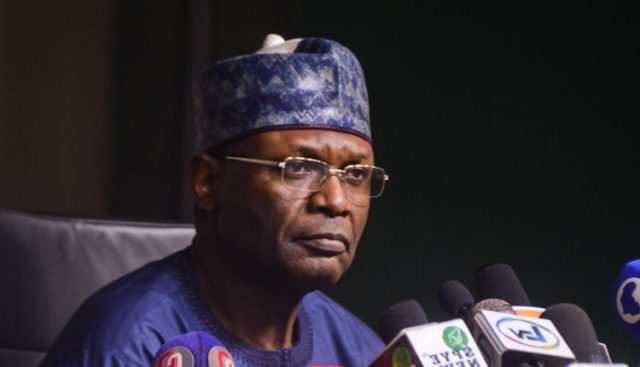The Independent National Electoral Commission (INEC) has urged the National Assembly to enact stricter laws to combat vote-buying and other electoral malpractices in Nigeria. During a consultative meeting in Abuja with security agencies and the technical committee on electoral law amendments, INEC’s Director of Litigation and Prosecution, Tanimu Muhammed, raised concerns about the increasing threat of vote-buying to the nation’s democratic process.
The meeting, organized by the Joint Senate and House of Representatives Committees on Electoral Matters in partnership with the Policy and Legal Advocacy Centre and supported by the United Kingdom Foreign, Commonwealth, and Development Office, served as a forum to discuss electoral security and necessary reforms.
Muhammed pointed out that politicians often justify carrying large sums of money on election day by citing payments to party agents and logistical expenses. However, he warned that this unregulated flow of cash at polling units has exacerbated vote-buying and compromised the integrity of elections.
To tackle this issue, Muhammed proposed a cash limit of ₦50,000 for individuals within polling areas, arguing that such a measure would make it harder for politicians to influence voters financially. “Vote-buying remains one of the biggest threats to credible elections in Nigeria. We need legislation that not only criminalizes this practice but also implements preventive measures,” he stated.
In addition to the cash limit, INEC reiterated its call for the establishment of an Electoral Offenses Commission. Muhammed explained that while INEC has been handling prosecutions, a dedicated institution with the legal authority and resources to investigate and prosecute electoral crimes is essential to ensure justice for offenses like vote-buying and ballot snatching.
“INEC is doing its best to handle prosecutions, but we need a dedicated institution with the legal authority and resources to investigate and prosecute electoral crimes comprehensively,” Muhammed said. “The creation of an Electoral Offenses Commission would ensure that vote-buying, ballot snatching, and other crimes are met with swift legal action,” he added.
Ondo State Resident Electoral Commissioner, Oluwatoyin Babalola, supported the proposal, noting that a cash limit would provide security agencies with clearer guidelines on identifying electoral offenses, simplifying enforcement. “If we set a cash limit, security agencies will have clearer guidelines on what constitutes an electoral offense, making enforcement easier,” she said.
Security agencies, represented by Commissioner of Police Abayomi Shogunle, responsible for election planning and evaluation, reaffirmed their commitment to ensuring free and fair elections. Shogunle acknowledged the logistical challenges faced by law enforcement, such as deploying officers to remote areas and maintaining effective communication during elections. He stressed that addressing these challenges is crucial for enforcing electoral laws effectively.
“We face major logistical challenges, from deploying officers to remote areas to ensuring real-time communication during elections. These are issues that need to be addressed if we are to effectively enforce electoral laws,” Shogunle said.
In response to INEC’s concerns, Hon. Adebayo Balogun, Chairman of the House Committee on Electoral Matters, assured that the issues raised would be addressed in future electoral reforms. He announced plans for a 2025 Electoral Act to replace the current 2022 version, which revealed gaps during the 2023 elections. Balogun emphasized the importance of legislative reforms and raising awareness among political parties, INEC officials, and civil society organizations about the dangers of vote-buying and other malpractices.
“The 2022 Electoral Act was a significant step forward, but its implementation in the last general elections showed areas that need improvement. We are committed to strengthening our electoral laws to reflect the realities of our democracy,” Balogun said.
Senator Sharafadeen Alli, Chairman of the Senate Committee on Electoral Matters, also acknowledged that while the 2022 Electoral Act was considered comprehensive, its implementation highlighted areas needing improvement. He emphasized that the proposed reforms are vital for strengthening Nigeria’s electoral system and ensuring the continued evolution of the country’s democracy.

